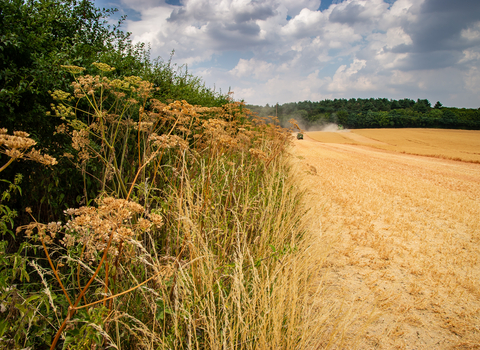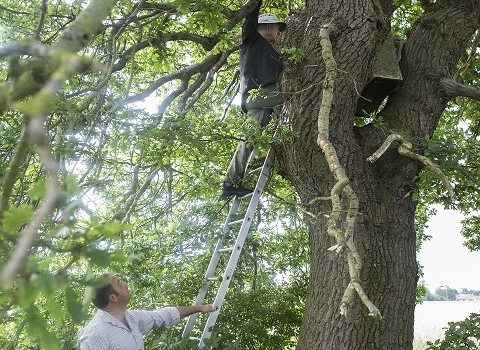The greatest success has been maintaining the fundamental principle of public money paying farmers to deliver public goods. Public goods are considered things that society need but that farmers cannot sell in a marketplace. Good examples include flood alleviation or increased biodiversity, through creating more habitat that supports wildlife for example.
This is a success to be celebrated and marks a huge change in the way farmers are supported. It is a world-leading policy that means land managers are paid public money from the state, in return for acting as a steward of the land for the provision of these public goods (as opposed to the provision of goods that have a marketable value).
Alongside this, The Wildlife Trusts mounted a robust defence of the standards that farmers adhere to and taken part in significant campaigns to avoid a lowering of these in trade deals. Whilst there has been some strengthening within the Act around the position of the Trade and Agriculture Commission being cemented, we do not know their membership or details of their remit. Work is also needed on the Trade and Environment bills so that they dovetail with the Agriculture Act.
Despite the passing of the Agriculture Act, this is not a moment to rest. The next few years will see Defra, farming groups and land managers from across England working to create a programme that actually delivers this policy. The acronym ELM, the Environmental Land Management scheme, is not new but this delivery programme exists in skeleton form at present. We must get the right detail in. This goes all the way from what land is eligible to receive ELMs payments, to how much funding is available, from what degree of ambition the scheme has, to what the handbook looks like. It is a huge undertaking and we must not take the easy path. It must be right if it is truly to deliver for the environment and our natural world.
The Wildlife Trusts already hold concerns that ELM is being watered down and will not deliver the promises of the new Act, whilst using up precious budget.
We are deeply concerned that the Sustainable Farming Incentive (SFI, to become Tier 1 of ELM), which is the delivery mechanism between 2021 and 2024, is not going to deliver genuine benefits. We need to know the detail of what will be contained in regulation and enforcement alongside SFI so that we know what ‘public good’ public money is paying for. Without this knowledge we worry that SFI may simply pay for the status quo, which is seeing wildlife continue to decline.
So there is real reason to celebrate but now we must redouble our efforts to get the less newsworthy work done on regulation, systems, standards and detail to make sure we kick-start nature’s recovery on 70% of our countryside.
The stark reality remains, as the environmental activist David Suzuki so correctly puts it, that if we continue to…
“pollute the air, water and soil that keep us alive and well, and destroy the biodiversity that allows natural systems to function, no amount of money will save us”.



